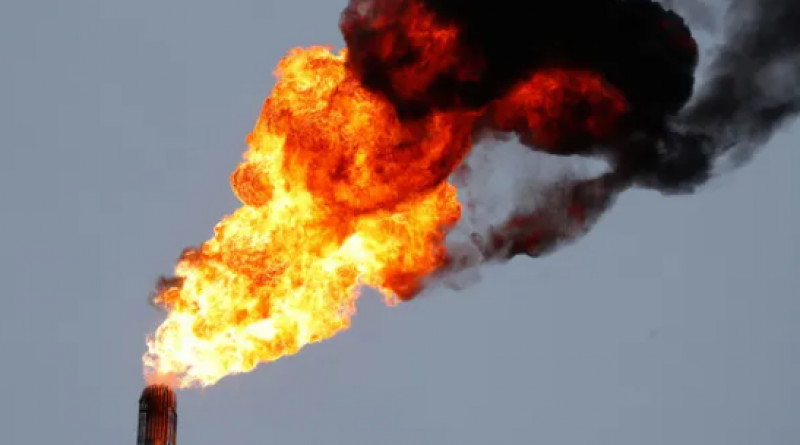Global oil companies have committed to 'net zero' emissions. It's a sham.

The energy industry is like a smoker who goes from one pack a day to two – but claims they’re quitting because they switched to filtered cigarettes.
The United Nations campaign Race to Zero recently published a paper identifying 20 pathways to reach net zero carbon emissions. In December, the British Oil & Gas Authority published a requirement that oil and gas development be “consistent with net zero” (despite approval of new offshore permits). BP, Shell and other multinational companies have all now published their “net zero” pathways.
The world finally seems to be aligning around the idea that to have a stable and safe planet we need to reach net zero emissions. That’s fantastic, and overdue. What’s less fantastic is that many companies and countries are using “net zero” to justify expanding the production of fossil fuels. This is something people living near fossil fuel infrastructure – and our global climate – simply can’t afford.
Take Canadian oil giant Enbridge, for example. In November, it committed to a target of “net zero” emissions. In spite of that commitment, the company has pushed forward with blasting and bulldozing a new tar-sands pipeline through sensitive waterways and Indigenous lands. The Line 3 pipeline is heavily opposed by local community water protectors and Indigenous leaders, many of whom have been arrested in the past month for blockading the project. The pipeline, if completed, would have the impact of opening 50 new coal-fired power plants or adding 38m new gasoline vehicles to our roads.
This is like a smoker going from one pack a day to two – and then claiming they’re quitting because they’re switching to filtered cigarettes.
All that the major oil companies have done (with tacit support from many governments) is shift their public narrative about the climate crisis from denial to delusion. They’re no longer insisting there’s no problem, because they lost that argument. “Net zero” is their attempt to continue business as usual without addressing what they’re doing to people and the planet.
If it wasn’t so serious, the premise would almost be comical: oil companies are claiming that not only can they keep their current levels of production, but expand their operations that extract and refine fossil fuels. They would have us believe that by planting trees and using largely unproven, expensive, and thus far inefficient carbon-capture technologies, they can reach “net-zero” and solve the climate crisis – all while continuing to grow fossil fuel production.
This argument is delusional and based on bad science. To have any realistic shot at maintaining a 1.5C world, we need to be winding down and phasing out fossil fuel production, not growing it – as its executives are incentivized to do.
Even as fossil fuel companies admit the climate crisis is a real and pressing issue, they’re continuing to build out infrastructure to support 120% more fossil fuels than the world can burn in a 1.5C scenario. Not to mention that they’re also spending billions of dollars lobbying governments to weaken climate policy.
Let’s be clear – “net-zero” is being used by incumbents to obfuscate what actually needs to be done to meet the Paris climate goals. The rush to build out more infrastructure, the inordinate amounts of spending to influence elected officials – all of this is a last-gasp attempt by a dying industry to lock in as much profit as possible while it still can.
Fossil fuel companies are using bloated estimates of nature-based and carbon capture technologies along with carbon markets to justify further fossil fuel expansion and production. We can’t let them. We already have too much carbon in the atmosphere. We are already experiencing floods, fires, droughts and extreme weather. At this juncture every extra ton produced matters.
That’s why we need a solution that involves international cooperation supported by a massive groundswell of popular support to solve this crisis – arguably the largest and most urgent we’ve ever faced as a species. One that pushes back against false solutions and manages the transition to a clean energy economy in a way that is safe, fast, and fair.
The best solution is a Fossil Fuel Non-Proliferation Treaty – paired with local actions to constrict fossil fuels like those being undertaken by movements like Safe Cities – to phase down fossil fuels and enable a globally equitable transition to cleaner energy and economies. No government or company can do this alone. If we are to address competitiveness, equity, leakage and everything else needed to align production with climate science, we need international cooperation.
Endorsed so far by nearly 200 organizations around the world and cities including Vancouver and Barcelona, the guiding principles of the Treaty are straightforward and modeled on post-conflict and nuclear non-proliferation treaties:
-
Non-proliferation: Preventing proliferation by ending all new exploration and production.
-
Global disarmament: Phasing out existing production in line with 1.5C.
-
Peaceful transition: Fast-tracking real solutions through scaled-up access to renewable energy and a just transition for every worker, community and country.
The challenge of climate change is large, but it’s not intractable. There are pathways out there that lead to a 1.5C world – they just don’t include fossil fuel companies and governments that insist they can keep expanding production under the guise of “net zero”.
-
Tzeporah Berman is the chair of the Fossil Fuel Non-proliferation Treaty and a former co-chair of the Oilsands Advisory Working Group in Alberta, Canada
-
Nathan Taft is a senior digital campaigner who works on the Treaty’s sister campaign, Safe Cities, at Stand.earth
3 March 2021
The Guardian





